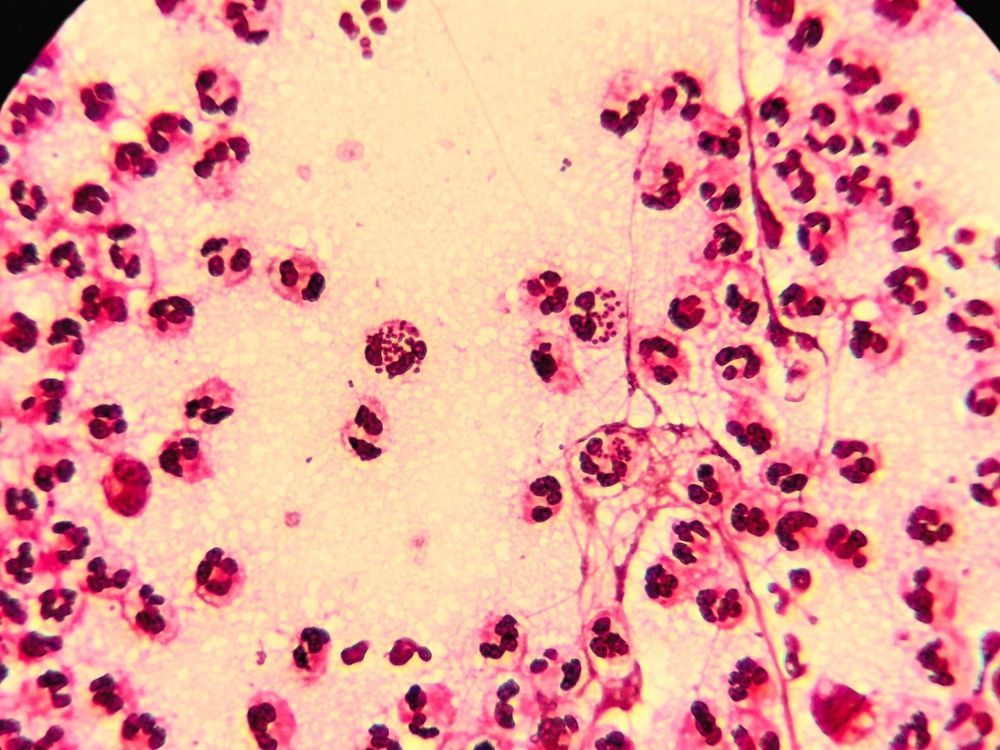What is the Difference Between STI and STD?
Share this Article:
What is the difference between STI and STD? Symptoms such as pain and discomfort when urinating, cloudy urine, discharge, abdominal and/or pelvic pain, fatigue, headaches, and muscle pain should never be ignored. They can be indicators of a sexually transmitted infection (STI) or sexually transmitted disease (STD). We break down the exact difference below.
What is an STI?
A sexually transmitted infection, as the name implies, is an infection that is typically transmitted via sexual activity but can also be transmitted by activities such as sharing needles. These infections include bacteria, viruses, and/or parasites. Examples of sexually transmitted infections include Chlamydia, Syphilis, Vaginitis, Herpes, crabs, scabies, and genital warts.
Some people who have an STI may experience noticeable symptoms such as the ones outlined above. Others may experience few or no symptoms. For this reason, medical professionals highly recommend STI testing for those who are sexually active with more than one partner, have HIV, or have been sexually assaulted. A person whose partner has been diagnosed with an STI should also seek testing as soon as possible. Early intervention is key to preventing the spread of infection and limiting the damage infection can do in a person’s body.
What is an STD?
A sexually transmitted disease typically comes from a sexually transmitted infection that has not been properly diagnosed and treated. For instance, the human papillomavirus (HPV) is considered to be an STI; however, if it turns into cervical cancer, it is then considered to be an STD.
Unlike some sexually transmitted infections, STDs can cause serious, life-long health problems and may require ongoing care and treatment. Complications include reproductive system problems, chronic pain, cancer, and an increased risk of contracting HIV. Furthermore, sexually transmitted diseases can have a significant negative impact on an unborn child. Pregnant women who have HIV or an STD can pass on the infection to the fetus and the baby could be born with complications such as eye infection, joint infection, blood infection, or central nervous system damage. A sexually transmitted disease can also increase the risk of a pregnant woman having a miscarriage or stillbirth.
Is There a Difference Between STI and STD?
STI vs STD: is there really a difference? The two terms are often used interchangeably, but there is an important difference between the two names. Infections can cause a great deal of pain and discomfort, but they are usually easy to treat. Diseases, on the other hand, are chronic and can, in some instances, cause lifelong problems.
It’s also important to note that many medical professionals are deliberately avoiding the use of the term “sexually transmitted diseases” as it’s not only inaccurate in most cases but also has a negative connotation. Using the term “infection” eliminates the stigma attached to the conditions outlined above, making it easier for individuals to seek out care and treatment than it would have been otherwise.
How are They Treated?
A doctor will start by testing to identify the type of infection a person has. Testing can also enable a provider to see if the infection has caused a disease or significant internal damage.
In some instances, depending on the person and the nature of the infection, an STI can be treated with over-the-counter medication, home remedies, or even lifestyle changes. However, in most instances, a sexually transmitted infection is treated with prescription medication. Antibiotics are prescribed if a person has a bacterial infection while antivirals are used for viral infections. Creams or lotions are typically used to treat parasitic infections. The length of time that one has to take medication depends on the type of medication needed and the severity of the infection.
If a pregnant woman has an STI or STD, a doctor will ensure the treatment provided is safe for the mother and baby. The doctor will also assess the risks involved in natural delivery and may recommend that a woman has a C-section in order to avoid passing on an STI or STD to the newborn. Some mothers who have an STI or STD may not be able to nurse the baby as there may be a risk of transmitting infection or disease via breast milk.
Pregnancy Care Clinic is Here to Help
A person who has symptoms of an STI or STD, or who has had sexual relations with a person who had an STI or STD, will want to seek testing at the earliest opportunity. Pregnant women should also receive testing even if they don’t think there is any chance of having an STI or STD, as the consequences of passing on an infection or disease to the fetus are severe. Even those who are planning on having an abortion should receive testing. An abortion could put a woman at risk of contracting Pelvic Inflammatory Disease if the condition hasn’t been treated by a medical professional.
STI/STD testing does not have to be expensive or time-consuming. Pregnancy Care Clinic offers free testing to men and women alike. Results are either delivered immediately if they can be processed by the on-site lab or sent for overnight assessment to an off-site lab. As part of the testing process, PCC also conducts a free pregnancy test, as the outcome of such a test will affect treatment options. Once the diagnosis comes in, a licensed medical professional will explain the recommended course of treatment, prescribe medication, and give counsel on when and how long it should be used.
Pregnancy Care Clinic also provides free medical care and support services to women who come in for STI/STD testing and find out they are pregnant. Our services include natural family planning information, peer counseling and education, emotional support, childbirth education and parenting classes. We also provide practical help and assistance to pregnant women in college, encouraging them to use the many resources available to them to finish their education. If you or someone you know could benefit from STI/STD testing, get in touch with us at your convenience for free medical care, treatment, and counseling tailored to meet your needs.




